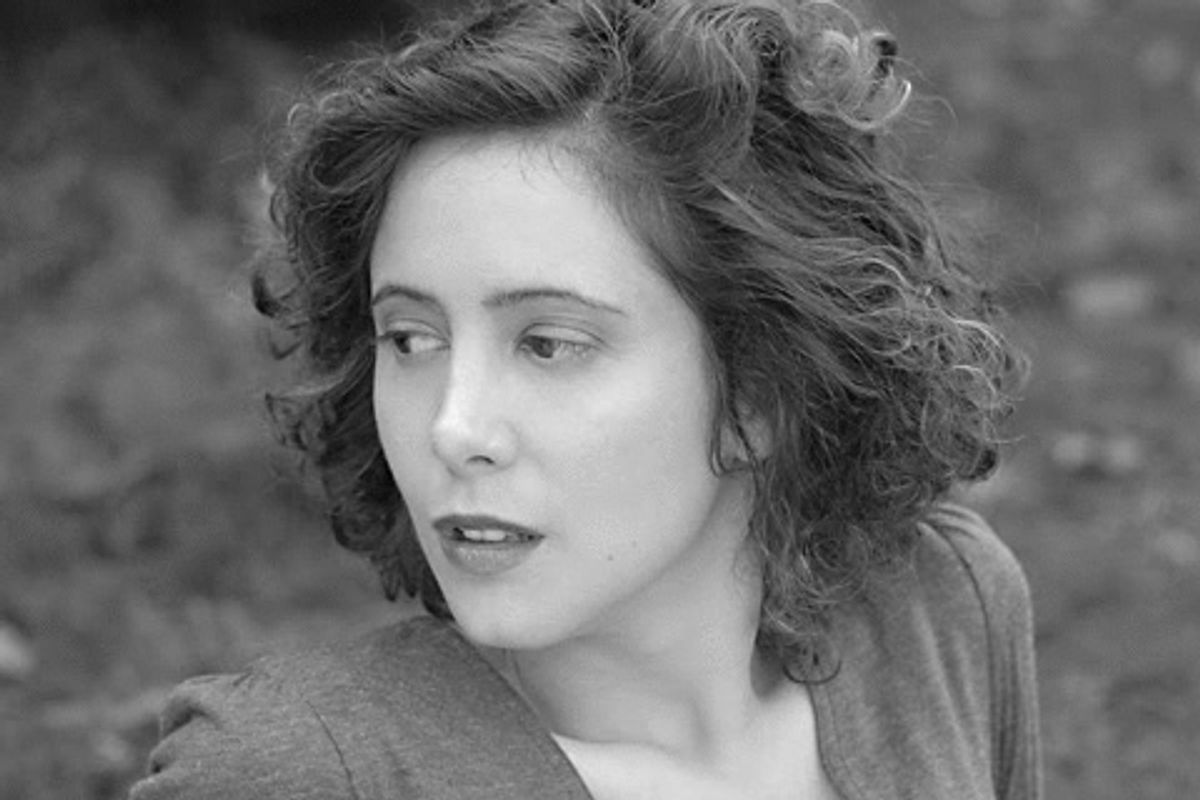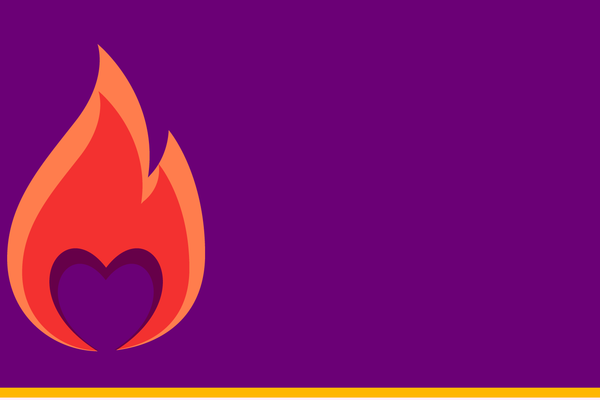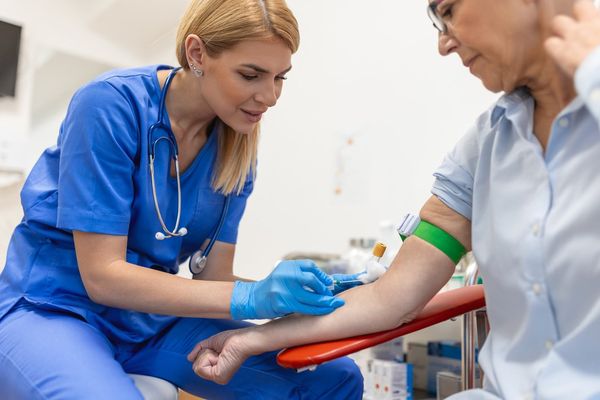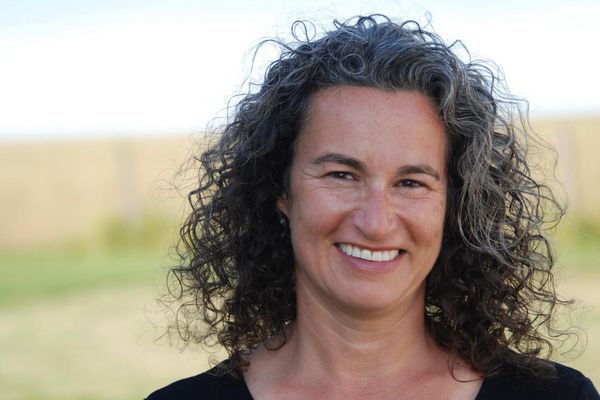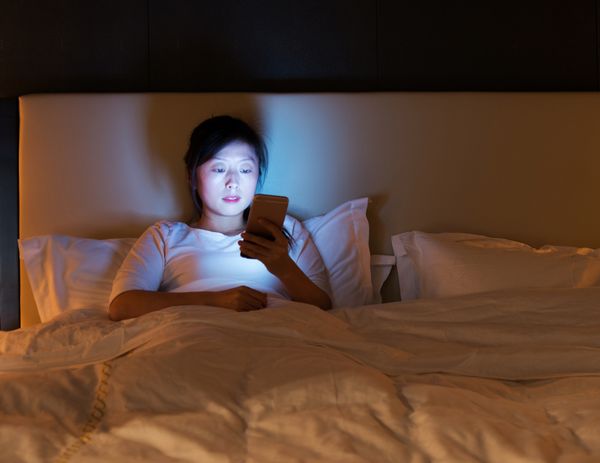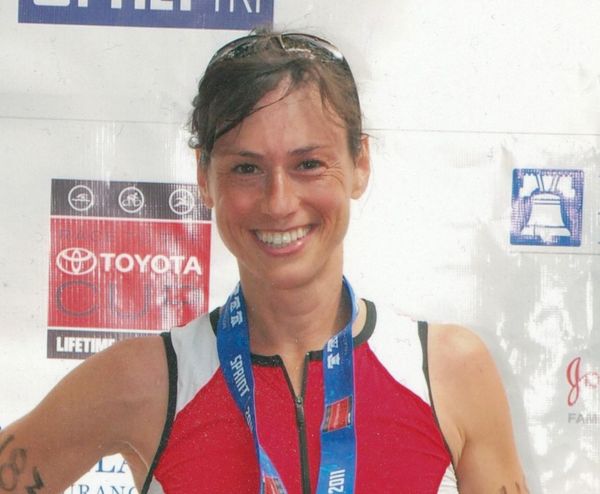The trickle arrives at 11 a.m. A plum-colored stain on the toilet paper. A scarlet plume that heralds the end of my melancholic misery.
"It came! It came!" I rush to the door and call down the hall to my husband, who is doing the dishes.
"Congratulations!" he calls back, and I feel a surge of anger because he is really congratulating himself on surviving my tyrannical depression these last two days. How dare my husband make this about him? Then I realize the madness has not entirely abated.
Perimenopause is the time during which the female body makes a transition from its fertile phase to menopause. Many people don't realize there is a stage of life between your last "normal" period and your last ever period, because people rarely talk about anything significant and complicated that happens in the lives of women. I long ago accepted this, but my astonishment at how little we value the complexity of women's experiences was revived anew when my own perimenopause began.
How can I explain perimenopause to a woman in her 30s? Well, it goes something like this: One day, you will experience something close to psychosis. You will flip from joy to rage several times a day. You will lust after the vilest of television villains, have fantasies that make your old fantasies blush. You will experience manic joy. You will plummet to ghastly lows, imagining yourself stuck in the kind of tar that trapped Ice Age mammals, driving them to extinction. You will develop aphasia. Or ataxia. Or both.
Then again, maybe perimenopause is rarely discussed because it dwells in the interiority of each woman uniquely, thwarting classification and, of course, sanity.
I am not a fan of summer. I dislike the relentless heat and sun. I love autumn — chestnut scents, shortening days, crispy leaves, shadows. But I've learned to perceive summer in a kind of rapturous misery. The blinding sunshine intensifies my longing for September, and this brings me perverse, but deep happiness.
I've had PMS for most of my life, but now I get perimenopausal psychotic depression. I have learned to ride the intense grief of this depression the way I ride the summer — delighting in my own misery because it forecasts its own end. The worse the summer, the more rapturous is the first day of fall, crisp and clear.
Still, this anticipatory pleasure, laden with dank pathology and dread, is nothing like the pure roar of happiness when estrogen returns. But it has one thing on the ecstasy of bleeding: it is reliable, in a way happiness can never be. Happiness is ephemeral, but pain, you can count on. Pain, you can set your clock to. Pain will not desert you.
Perimenopause is utter madness.
After my period comes, I stand in a hot shower. How wonderfully bodily my cramps are! How simple and tangible! I hum, noticing I suddenly have the capacity for executive function again — I am making lists! I am listening to the radio while I make lists and also while I soap up my body! Behold all the lit-up pathways of my brain! Where once was only psychic pain, now are whole-formed plans and dreams, like plump roast chickens ready to pop from the oven.
Everything the radio announcer says is interesting and new. I must remember to write it all down. And dust the house. And make more lists. Clarity! Vitality! It's back. I'm back. Whoever I am.
Someone should warn women that when perimenopause begins, they will love naps as intensely as they once loved a new pair of boots or the arrival of a love letter. I love naps so much now. I cannot believe there was ever a time when I didn't — when I couldn't — take naps. My computer keyboard has become Dorothy's poppy field. Should I write a novel or take a nap? Take a nap. Eat chocolate, or take a nap? Take a nap. Every time.
It might be hormonal fog, but it also might be blood loss, because perimenopause is biblical. No longer do I "get my period." Now it looks like I'm decapitating chickens in my toilet. I can't get from the shower to the tampon drawer without the room looking like a crime scene. I pee blood. Buckets of it. So maybe the nap thing is perimenopause-induced anemia.
Cramps have changed too. In my 20s and 30s, cramps controlled three days of my life every month. I would take four ibuprofen every six hours and lie on a heating pad for three days straight when my period came. Now, cramps are mild. But I get them at times I never used to get them. After sex. After orgasm. And they're intense for a good fifteen minutes. My uterus is irritable. It doesn't like to be disturbed. Maybe the sex wakes it up from a nap.
Ernest Becker wrote that "to live fully is to live with an awareness of the rumble of terror that underlies everything." He must have been writing about perimenopause.
My god, the anxiety. All my life, people have said that anxiety is depression's flip side, and I've replied that in my case, it hasn't been. Depression, I know. The blues? Constantly. I was even hospitalized once. But no doctor ever thought I was anxious.
Then I turned 44, and anxiety walked into my life and made up for lost time. Anxiety doesn't follow a cycle. Hormonal depression, I can set my watch to: Day One: I bleed, I feel elation. I have energy. I am free, unburdened, joyful. Day 11: I feel pretty good. Day 14: I am high on hormones. I release cervical discharge and vacuum the carpet at right angles. Day 16: Uh-oh. Day 18: I want to die. I crawl through the darkness to Day 28.
Anxiety, on the other hand, flows in and out with no pattern. It ignores the calendar. It makes me wired. It makes me sleepy. It makes me forgetful. All of which makes me anxious.
The day I get my period, I take our dog, Albert, to the park. The flow is light at first, but still uncomfortable. In 32 years, I have never gotten used to how miserable it is to be wet and sticky for six days.
My vaginal skin burns when I bleed, raw and hot. I don't use tampons much because they hurt. They chafe the cervix. I am stuck with pads, which only work if you have very tight underwear on. If your underwear is old and stretched out, the pad surfs and wriggles on the air below you, and you only hope the oozing blood is landing on it.
Albert and I perch on the rocks by Turtle Pond. I place my heel in my crotch, surreptitiously beneath my skirt, so the pressure will ease the tingling nerves in my pelvic floor. These miseries are not from perimenopause, just from plain old menstruation.
The thing about perimenopause is that it does not excuse you from menstruation. That's menopause. Perimenopause is the last ten years before, the buckets of blood and the longing to hump the nearest fire hydrant, the mood shifts so sudden and fierce they're like that carnival ride where the floor drops out beneath you.
All of this should have me longing for menopause. But it doesn't. All my life, hormones have given me something that is not entirely bad: the awareness of the terror that underlies everything. After menopause, will anything else have the power to rouse me?
If there is no deep down, can there be high up? If it is light all the time, how will I see? What will sensation be like after my final storm?
Is perimenopause the last time I, however ambivalently and unpredictably, will be ripe? Is rotting the next stage?
The coolness of morning is giving way to summer heat. The rocks are hot, even in the shade. There is no wind, nothing to alleviate the thickness of the air. I stand up. Albert looks at me despairingly. Do we have to walk home in this?
No warning rumbles, just a sharp crack of thunder and the sky rips open. It's on! Albert and I are racing through the rain. Cold, wet, shivering. The adhesive of my pad clings painfully to my pubic hair. My cervix throbs with each sprinting step, each pump of blood from my fast-beating heart. My skin is slick with rain; inside and out I perceive the briny mix of flesh and fluid that defines a living thing, as though life were one long baptism. I no longer feel as if I am racing home, but instead, rushing toward the future, the rain washing away the scenery of all that is past.
With or without a monthly menstrual flow, there will always be a current rushing through me, the elements will always soften and harden and soak me. We are both broken and preserved by them. Our lives are not straight lines from ripeness to rotting, but a loop, from vital to weary and back. Or, put another way, we rot, so that we can ripen once more.
Leslie Kendall Dye is an actress and writer in New York City. Her work has appeared at The New York Times, The Washington Post, Salon, SELF, Longreads, Electric Literature, and many others. She is at work on a memoir about mothers, daughters, drugs, and show business. https://www.lesliekendalldye.net
- Top 10 Menopause Symptoms ›
- Surviving My Crazy Period During Perimenopause ›
- The Truth About Working While Struggling with Perimenopause ›
- Hormone Therapy Saved My Life After Doctors Dismissed My Perimenopause Symptoms ›
- Dealing With Rage During the Perimenopause Transition and Beyond ›

